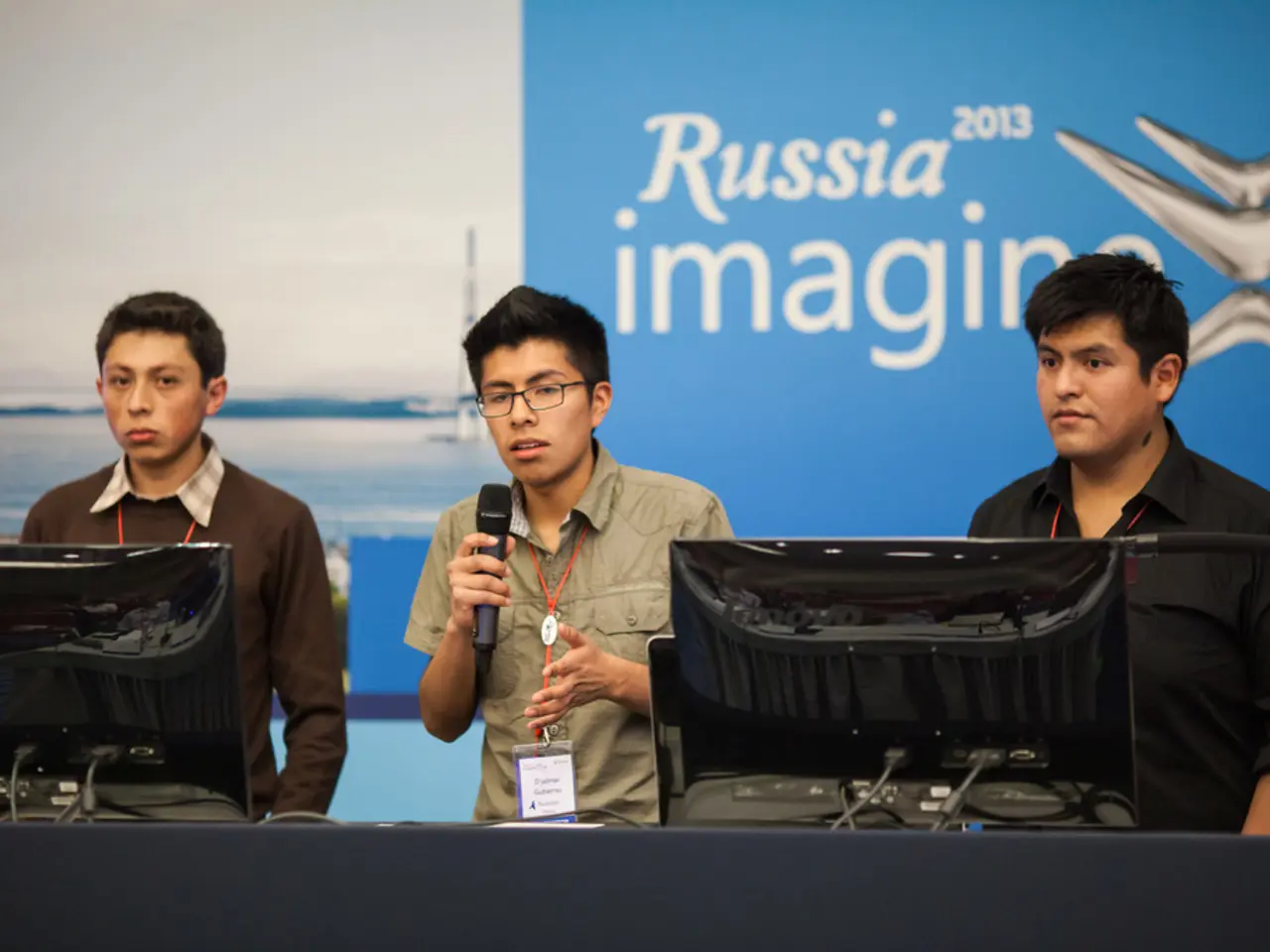Equilibrium Restored in the Job Market
In the current economic climate, Russia's labor market is experiencing a unique set of challenges, with job seekers exhibiting an all-time high sentiment and companies focusing on retaining their top talent [1]. This shift is influencing the adoption of long-term motivational tools, such as stock option programs, to keep high-performing employees engaged.
The labor market in Russia is facing a crunch, with a slowdown in wage growth and hiring, particularly in the service sector. This could impact the effectiveness of traditional motivational tools, compelling companies to adapt their strategies to the more challenging environment [2]. Navigating the complex compliance requirements in Russia, including social contributions and employment regulations, further complicates the implementation of motivational programs [3].
Despite these challenges, stock option programs have proven to be effective in retaining top talent by fostering a sense of ownership and aligning employees' interests with the company's success. This enhances employee loyalty and satisfaction, which are crucial in a competitive market [1]. However, the implementation of these programs in Russia may face obstacles due to the economic environment and regulatory requirements [4].
To succeed in this market, stock option programs and other long-term motivational tools need to be tailored to Russia's unique conditions, including potential sanctions and economic fluctuations. This might involve offering alternative benefits or flexible compensation packages to better align with local workforce preferences [3].
The ongoing war for talent is a topic of discussion, with nearly one in five large Russian companies that go public implementing long-term motivational programs [5]. The Director of Government Relations and Corporate Governance at hh.ru has highlighted this issue, underscoring the importance of these programs in attracting and retaining top talent [6].
As the labor supply exceeds demand for the first time in a long time, by around 100,000 people, companies are exploring innovative solutions to address labor shortages. One such approach is offshoring, where a team of specialists remains in the host country while their work is controlled remotely. A hybrid model for offshoring could also be considered, with development taking place externally, and then the digitized designs and prototypes being sent back and implemented locally [7].
In the face of these trends, companies like Severstal are taking proactive measures to protect against margin drops, such as investing in a pellet production shop [8]. The board chairman of Severstal, Alexei Mordashov, expresses confidence that the company will remain under his control in the near future [9].
However, rapidly growing risks may cause reluctance among large and medium-sized Russian owners to invest. The stability of property rights is considered the most important factor for Russia in the current situation [10]. The Deputy Head of the Far Eastern Main Department of the Central Bank of Russia has discussed the idea of offshoring, emphasizing the need for a cautious approach and further development [7].
In conclusion, the current trends and effects of long-term motivational tools in Russia's competitive labor market require careful consideration of local market conditions and regulatory challenges. Companies must balance long-term motivational strategies with the need to adapt to Russia's evolving labor market dynamics, ensuring they remain competitive and attractive to top talent.
The unique challenges in Russia's labor market have led companies to consider stock option programs and other long-term motivational tools to retain high-performing employees [1]. To be effective in this market, these programs may need to be tailored to Russia's conditions, taking into account potential sanctions, economic fluctuations, and complex compliance requirements [3].
nav(A) { background-color: #4CAF50; color: white; padding: 15px 32px; text-align: center; text-decoration: none; display: inline-block; font-size: 16px; margin: 4px 2px; cursor: pointer; border-radius: 4px; }
nav a:hover { background-color: #3e8e41; }
Companies in Russia are exploring various solutions to address labor shortages, such as offshoring or hybrid offshoring models [7]. The ongoing war for talent among businesses is escalating, with nearly one in five large Russian companies implementing long-term motivational programs to attract and retain top talent [5].




